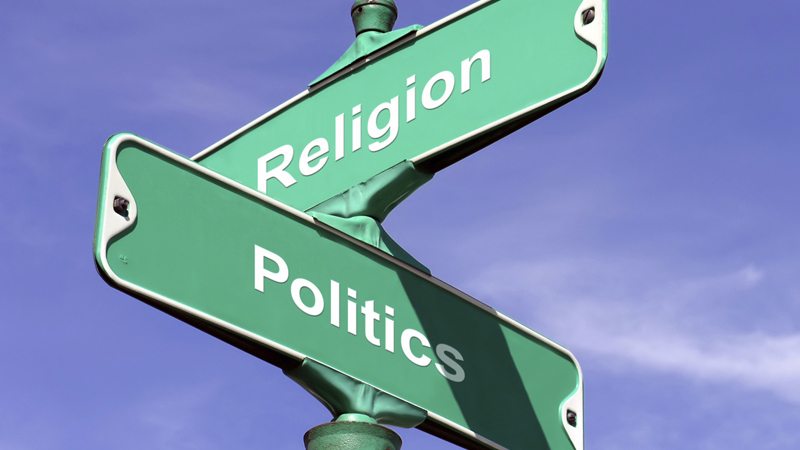Religion and politics: a personal view


“State must exist without religious interference”; “Religion is supposed to be pure and has nothing to do with politics”; “Without religion, a society can be more prosperous”. Do these statements sound familiar to you? They are often heard in circles where discussion concerning religion and politics is brought up.
The real question, however, is more fundamental in nature. It is based on the compatibility of religion and politics. Can both of them co-exist?
Any rational mind would question the credibility of the source of one who regards religion and politics as separate entities.
In order to understand the nature of the relationship between politics and religion, one must have firm understanding of the basic function of both concepts. Let us explore the function of politics first.
Generally, political thought is related to the creation of a functional system to govern a society the purpose of which is to maintain the balance of power in the society. This required people with political powers to help in the legislative process to devise laws required for the state and the society to function smoothly.
Granted that laws were created to maintain peace and harmony in the society, one must also inquire about the jurisdiction of state laws. Are laws enough to provide guidance to the people? Are laws enough to tell a person to love fellow human beings or a man to love orphans? Is there any law that can ensure a loving relationship between a husband and wife?
Beyond the boundary that limits the role of legislature, spirituality plays an active role. Religion, a proponent of spirituality, has always provided guidance to humans in areas where a void had been left. The Prophets and many wise people in history never separated religion from politics. They preached laws alongside spirituality which enabled the people to live fulfilled lives. This is precisely why the concept of sin was introduced to alert a person about receding spirituality. I consider this to be the strongest argument in favour of the unity of religion and politics.
There are many who argue in favour of states who have disassociated themselves from religion and are more ‘stable’ than religious states. On the surface, the argument may seem convincing, but it is important to understand that stability can often have subjective definitions.
One must ask whether stability is only related to economic strength. If the answer is in affirmative, then one must look at what greed for wealth has done to the humans over the course of history. It has led to class difference between the filthy rich elite class and the poverty stricken lower class. Now, if one considers military strength to be parallel to stability, then one must look around to see what weapons of mass destruction and military clashes such as the wars of the 20th century have done to the world. They have caused nothing but harm to the human civilization.
My definition of stability is different. I believe that a country is said to be stable when peace and pleasure are at the disposal of the people. Both of these cannot be achieved unless religion and politics are united to provide the humans a chance to live a fulfilling life. It is only the unison of the two that paves for national prosperity.
Leave a Comment